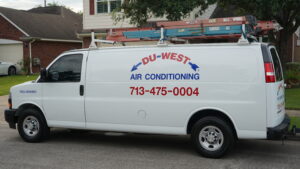Does a New Furnace Really Need Less TLC?
Hey there! I’ve been in the HVAC game for a while now, and there’s one question I keep hearing from homeowners: “If I buy a fancy new furnace, will it save me from all this maintenance hassle?” Well, grab a coffee, and let me break this down for you, the answer might surprise you!
The New Kids on the Block: Modern Furnace Tech
Let me tell you, today’s furnaces are pretty impressive. We’re talking smart thermostats that learn your schedule, fans that adjust their speed automatically, and systems that can tell you when something’s wrong. Pretty cool, right?
It’s like having a tiny HVAC expert built right into your system. But here’s the thing – all these bells and whistles come with their quirks. Sure, these new models are like smartphones for your home, but just like your phone, more features can sometimes mean more things that need attention.
Old vs. New furnace: The Maintenance Face-Off
Do you know what I love about older furnaces? They’re like those classic cars – straightforward and easy to understand. Pop the hood, and everything’s right there where you’d expect it to be. Need to change a filter or clean something? No computer science degree required!
Modern furnaces, though? They’re a different story. While they’re amazing at saving energy and keeping your home cozy, they’ve got more moving parts than a Swiss watch. And sometimes, that means more things to keep an eye on.
Service Calls: How Often Are You Dialing Your HVAC Pro?
Here’s a fun fact from my experience: older furnaces might need more frequent check-ups because, well, they’re getting up there in years. It’s like an old car – reliable, but needs regular attention to keep running smoothly.
Now, newer models might not need as many emergency calls thanks to their smart diagnostics. But when something does go wrong, you might need to find a technician who really knows their stuff.
The Energy Efficiency Game-Changer
This is where a new furnace can really shine, they’re absolute champions at saving energy. They convert more fuel into actual heat, which means they’re not working as hard to keep you warm. Less strain on the system can mean fewer problems down the road.
Older furnaces? They’re kind of like having a gas-guzzling vintage car. Sure, they get the job done, but they use more fuel doing it, and all that extra work can lead to more wear and tear.
Let’s Talk Money: The Cost of Keeping Things Running
Here’s where it gets interesting. Older furnaces might be cheaper to fix when something goes wrong, the parts are usually simpler and more readily available. But those repair bills can start adding up if you’re calling your HVAC guy every other month.
what about a new furnace?
When they need repairs, be prepared for a bigger hit to your wallet. Those fancy electronic components aren’t cheap! But you might save money in the long run since problems tend to pop up less frequently.
What You Can Do Yourself (And What You Shouldn’t!)
Whether you’ve got a shiny new model or a trusty old furnace, there’s plenty you can do to keep it happy. For older furnaces, basic cleaning and filter changes are usually pretty straightforward. I always tell my customers it’s like doing basic maintenance on your car you don’t need to be a mechanic to check the oil!
With a new furnace, you can still handle the basics like filter changes and keeping vents clear. Just remember to check that manual first these modern systems can be a bit particular about how they’re handled.
Regular Check-Ups: Still Your Best Friend
Here’s the bottom line, whether your furnace was installed last month or last decade, skip those regular inspections at your own risk! It’s like going to the doctor for a check-up. Sure, everything might feel fine, but catching problems early can save you from major headaches later.
Making Your Choice: What’s Right for You?
So, what’s the verdict? Well, it depends on what you’re looking for. If you love the latest tech and don’t mind dealing with more complex maintenance when needed, a new furnace might be your jam. But if you prefer keeping things simple and don’t mind more frequent but straightforward maintenance, there’s nothing wrong with sticking to an older model.
The Bottom Line
Here’s what I tell all my customers, a new furnace doesn’t necessarily mean less maintenance – they just need different kinds of maintenance. The key isn’t the age of your furnace, it’s how well you take care of it. Whether you’ve got the latest model or a trusted older unit, showing it some regular love will keep it running smoothly and efficiently.
Remember, every furnace needs attention, no matter how smart or simple it is. It’s not about choosing a maintenance-free option (because that doesn’t exist!), but finding the right balance of features and upkeep that works for you and your home.

